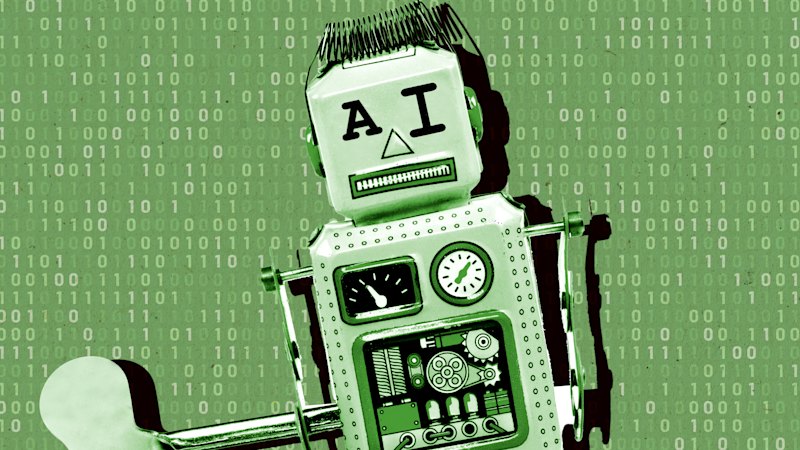
News
September 08, 2025
Can a toothbrush really be powered by AI? How about a washing machine?
The corporate world is going mad for AI agents, but there are growing concerns about AI washing, where vendor promises of bot capabilities don’t match reality.
## Can a toothbrush really be powered by AI? How about a washing machine?
The buzz around Artificial Intelligence (AI) is deafening. From self-driving cars to personalized medicine, the promises of AI are reshaping our expectations. But as corporations scramble to integrate AI into every facet of our lives, a critical question arises: is the hype outpacing reality? Are we witnessing a genuine revolution, or simply "AI washing" – a superficial application of AI labels to products that offer little more than existing technology already provided?
The concept of AI-powered appliances is becoming increasingly common. We're seeing smart toothbrushes promising personalized brushing guidance, and washing machines touted as intelligent systems that optimize wash cycles based on fabric type and soil level. But experts are beginning to scrutinize these claims, questioning whether the "AI" involved is truly sophisticated or merely a marketing tactic.
The concern isn't necessarily about the functionality of these devices. A smart toothbrush that monitors brushing pressure and time can undoubtedly be beneficial. Similarly, a washing machine that adjusts settings based on load characteristics offers convenience. The issue lies in the overblown claims surrounding AI integration. Is the toothbrush truly learning your brushing habits and adapting its recommendations in a meaningful way, or is it simply following a pre-programmed set of instructions based on sensor data? Is the washing machine actually analyzing fabric composition with advanced algorithms, or just relying on basic sensors and predetermined wash cycles?
This "AI washing" phenomenon can be misleading for consumers. They might be paying a premium for a product marketed as having cutting-edge AI capabilities, only to find that it offers marginal improvements over traditional models. This not only leads to consumer disappointment but also erodes trust in genuine AI advancements.
The corporate rush to capitalize on the AI craze has created a climate where vendors feel pressured to label their products as "AI-powered" even if the underlying technology barely qualifies. This raises serious questions about transparency and ethical marketing practices. As AI continues to permeate our lives, it's crucial to discern between genuine innovation and mere marketing spin. Consumers need to be critical and demand clear explanations of how AI is actually being used in the products they purchase, avoiding the trap of falling for unsubstantiated claims and inflated expectations. Only then can we ensure that the AI revolution delivers on its true potential and avoids becoming a synonym for empty promises.
The buzz around Artificial Intelligence (AI) is deafening. From self-driving cars to personalized medicine, the promises of AI are reshaping our expectations. But as corporations scramble to integrate AI into every facet of our lives, a critical question arises: is the hype outpacing reality? Are we witnessing a genuine revolution, or simply "AI washing" – a superficial application of AI labels to products that offer little more than existing technology already provided?
The concept of AI-powered appliances is becoming increasingly common. We're seeing smart toothbrushes promising personalized brushing guidance, and washing machines touted as intelligent systems that optimize wash cycles based on fabric type and soil level. But experts are beginning to scrutinize these claims, questioning whether the "AI" involved is truly sophisticated or merely a marketing tactic.
The concern isn't necessarily about the functionality of these devices. A smart toothbrush that monitors brushing pressure and time can undoubtedly be beneficial. Similarly, a washing machine that adjusts settings based on load characteristics offers convenience. The issue lies in the overblown claims surrounding AI integration. Is the toothbrush truly learning your brushing habits and adapting its recommendations in a meaningful way, or is it simply following a pre-programmed set of instructions based on sensor data? Is the washing machine actually analyzing fabric composition with advanced algorithms, or just relying on basic sensors and predetermined wash cycles?
This "AI washing" phenomenon can be misleading for consumers. They might be paying a premium for a product marketed as having cutting-edge AI capabilities, only to find that it offers marginal improvements over traditional models. This not only leads to consumer disappointment but also erodes trust in genuine AI advancements.
The corporate rush to capitalize on the AI craze has created a climate where vendors feel pressured to label their products as "AI-powered" even if the underlying technology barely qualifies. This raises serious questions about transparency and ethical marketing practices. As AI continues to permeate our lives, it's crucial to discern between genuine innovation and mere marketing spin. Consumers need to be critical and demand clear explanations of how AI is actually being used in the products they purchase, avoiding the trap of falling for unsubstantiated claims and inflated expectations. Only then can we ensure that the AI revolution delivers on its true potential and avoids becoming a synonym for empty promises.
Category:
Politics